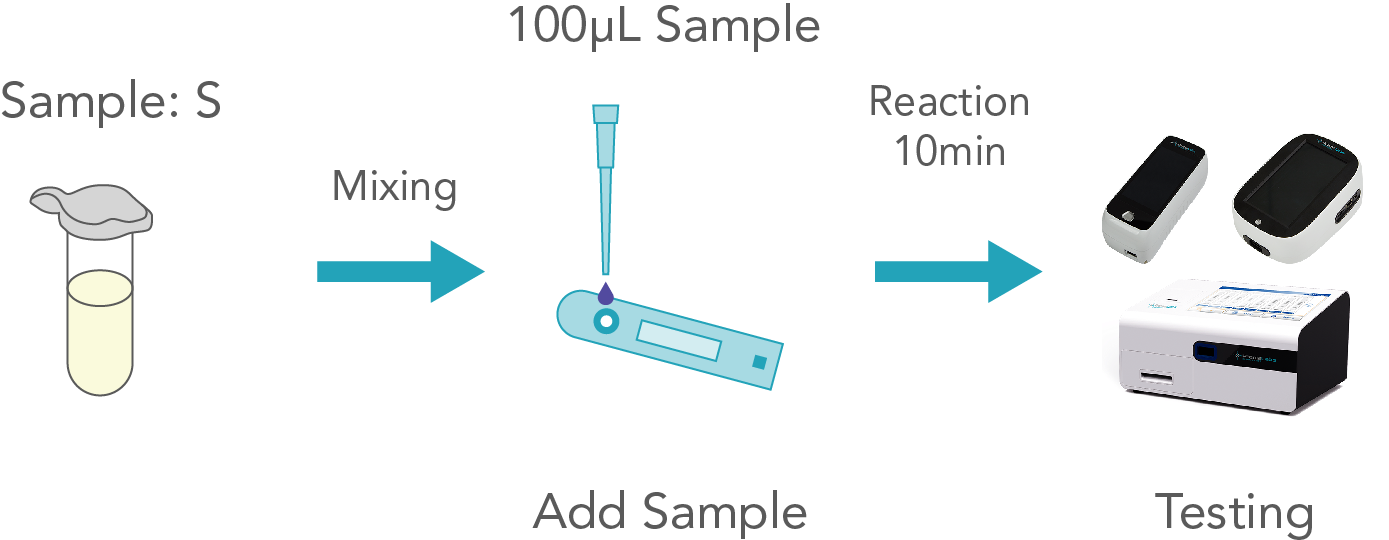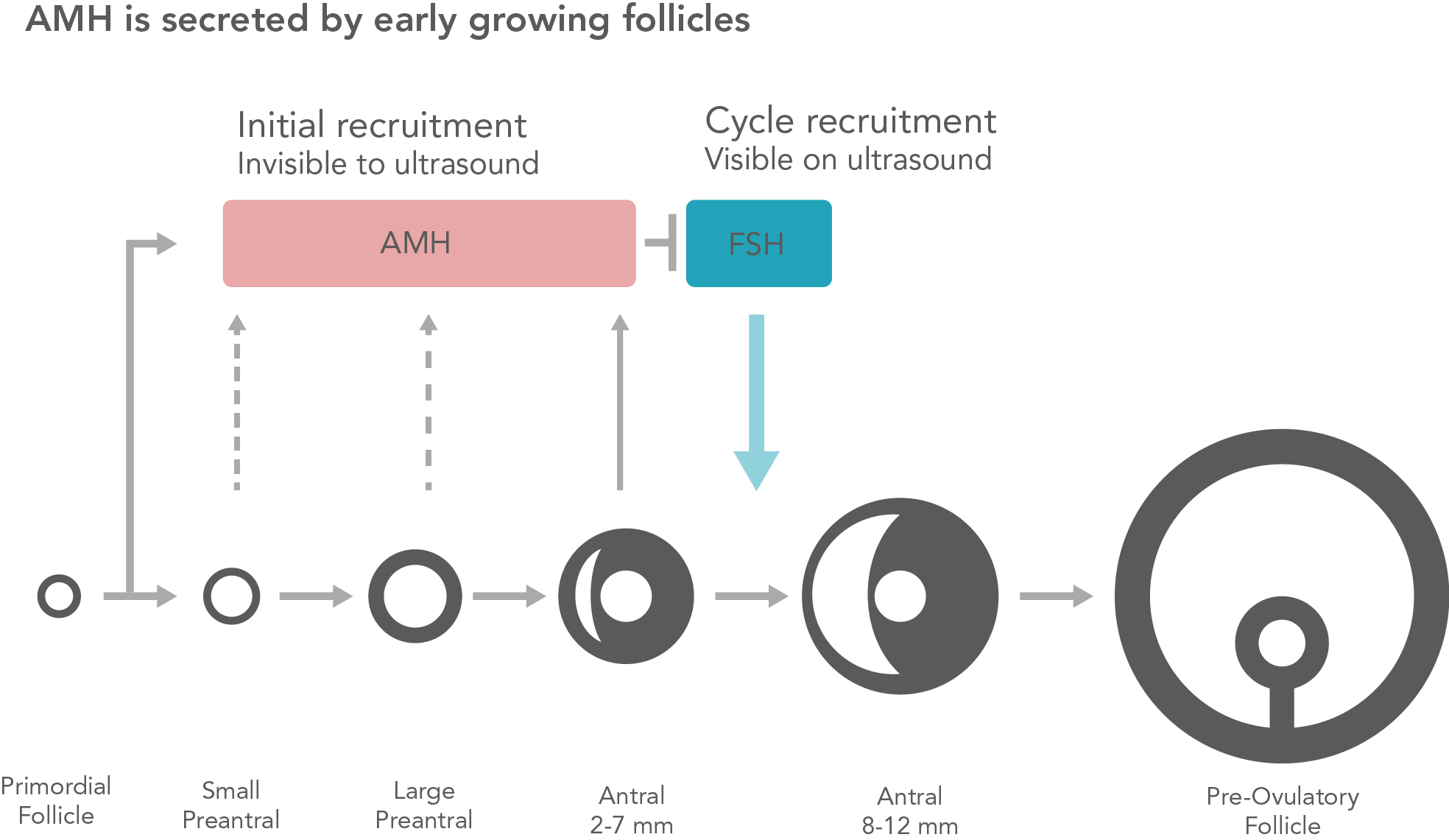BackDuration: 10 minutes
Evaluate ovarian reserve and other reproductive organ disorders
Clinical significance of test
Anti-Müllerian hormone (AMH) is produced by granulosa cells of growing follicles (during early stages of their development) in the ovaries. AMH is made in the reproductive tissues of both males and females. The role of AMH and whether levels are normal depend on your age and gender. In women, AMH levels can provide information about fertility and the ability to get pregnant. This hormone determines ovarian reserve. In other words, it defines the quantity but not the quality of follicles in the ovaries.
Steps of operation
Clinical application
- Best indicators of the number of eggs in ovaries or ovarian reserve
- Predict the start of menopause
- Help find out the reason for amenorrhea, the lack of menstruation
- Help diagnose polycystic ovary syndrome (PCOS)
- Check infants with genitals that are not clearly identified as male or female
- Monitor women who have certain types of ovarian cancer
Interpretation of results
Contact us


